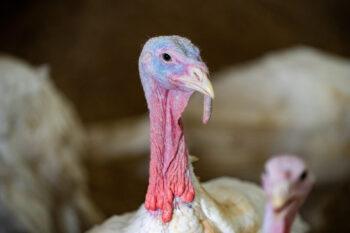Avian Influenza Not Expected To Disrupt Thanksgiving Turkey Prices And Stock

After just a three to four month break from avian influenza, the poultry industry is reeling again from another outbreak that has swept across the U.S., but this one isn’t expected to disrupt holiday turkey prices as much as last year.
The outbreak began in early October, said Dr. Greg Archer, Texas A&M AgriLife Extension Service poultry specialist and associate professor in the Texas A&M Department of Poultry Science. More than 1.4 million poultry nationwide, including 800,000 turkeys, have been lost due to the outbreak.
The most recent USDA National Weekly Turkey Report, from Nov. 3, does not show turkey prices reaching last year’s high, with the fresh market price for 8-16 pound and 16-24 pound whole turkeys between $1.16 to $1.74 per pound, and frozen 8-16 pound and 16-24 pound whole turkeys ranging between 91 cents per pound to $1.22 per pound.
Archer said consumers might want to plan ahead, just in case the latest avian influenza begins to affect prices.
“Buy your turkey early and store it in your freezer,” Archer said.
Avian Influenza strikes again
Last year, the poultry industry lost almost 60 million birds, including egg laying hens and turkeys between February and late December. Outbreaks waned this year, but Archer said winter bird migrations, including waterfowl, triggered a new outbreak.
The disease hits the turkey populations especially hard because of the time it takes to raise birds from hatch to harvest and flocks raised in open-sided houses.
Hatchling turkeys reach harvest weights in 10 to 18 weeks, which means they are at an increased risk of potential exposure to the pathogen. It takes 3.5-5.5 months to replace a flock lost to avian influenza.
Producers follow biosecurity and sanitary practices to help prevent diseases from entering their facilities, but avian influenza pathogens that do enter lead to total flock losses, he said.
“Until we figure out a way to fully prevent it from entering the industry, the disease will continue to mutate,” Archer said.
This article by Randi Williams originally appeared appeared on AgriLife Today.





